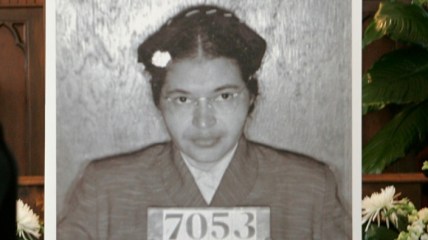Florida governor equated ‘Black joy’ with protest, judge rules
"Black people celebrating 'Black joy' and release from bondage does not automatically equate to a protest," wrote Judge Mark Walker in his ruling.
A federal Florida judge issued a preliminary injunction that blocks enforcement of a controversial “anti-riot” law enacted by Florida Governor Ron DeSantis.
Several social justice organizations — including the NAACP and Dream Defenders — challenged the law in district court, maintaining it quells free speech and the right to peacefully assemble, as guaranteed by The U.S. Constitution.
The organizations asked Chief U.S. District Judge Mark Walker in Tallahassee to temporarily block the new law’s definition of a “riot,” while they continue to challenge the legislation.

One example that DeSantis’ lawyers pointed to in their contention that Black Floridians were continuing to freely exercise their protest rights, was a Facebook post with a flyer announcing a Juneteenth celebration by an organization called Chainless Change.
According to a report from Reuters, Walker wrote that the Republican governor and his attorneys made an embarrassing mistake when they “conflated a community celebration of a federal holiday commemorating the end of slavery with a protest.”
“It should go without saying that a public gathering of Black people celebrating ‘Black joy’ and release from bondage does not automatically equate to a protest — or something that the Governor apparently implies should be chilled by the new riot law if Plaintiff Chainless Change’s claimed injury is to be believed,” Walker wrote.
In his 90-page ruling, Walker pointed out that DeSantis’ office has offered “shifting explanations” in the bill.
In a statement from DeSantis’ press secretary, Christina Pushaw contended that there is a clear difference between peaceful protests and riots, which are violent by definition.
“This definition has nothing to do with race or ethnicity,” Pushaw said. “Skin color does not predispose anyone to participate in political violence, and frankly, it’s offensive to assume otherwise — as your line of questioning seems to do.”
However, Walker wrote, “If Governor DeSantis included this particular [Juneteenth] post to imply that any gathering of Black people in a public space is a de facto protest, Plaintiffs’ concerns about the how the statute’s new definition of ‘riot’ will be enforced are indeed well-founded.”
Judge Walker noted that the state has demonstrated implicit racial bias in defending the law.
The new legislation would have created new felonies for those arrested in violent protests and would have allowed those arrested to be held without bond.
In his ruling on Thursday, Walker opined that DeSantis did not define what constitutes participation in or even what a “violent” protest is. “The vagueness of this definition forces would-be protesters to make a choice between declining to jointly express their views with others or risk being arrested and spending time behind bars, with the associated collateral risks to employment and financial well-being,” he wrote.
The Combating Public Disorder Act was enacted in April, just ahead of the announcement of a verdict in the trial of former Minneapolis Police officer Derek Chauvin, who was ultimately convicted of murdering George Floyd in May 2020.
Have you subscribed to theGrio’s “Dear Culture” podcast? Download our newest episodes now!
TheGrio is now on Apple TV, Amazon Fire and Roku. Download theGrio.com today!


